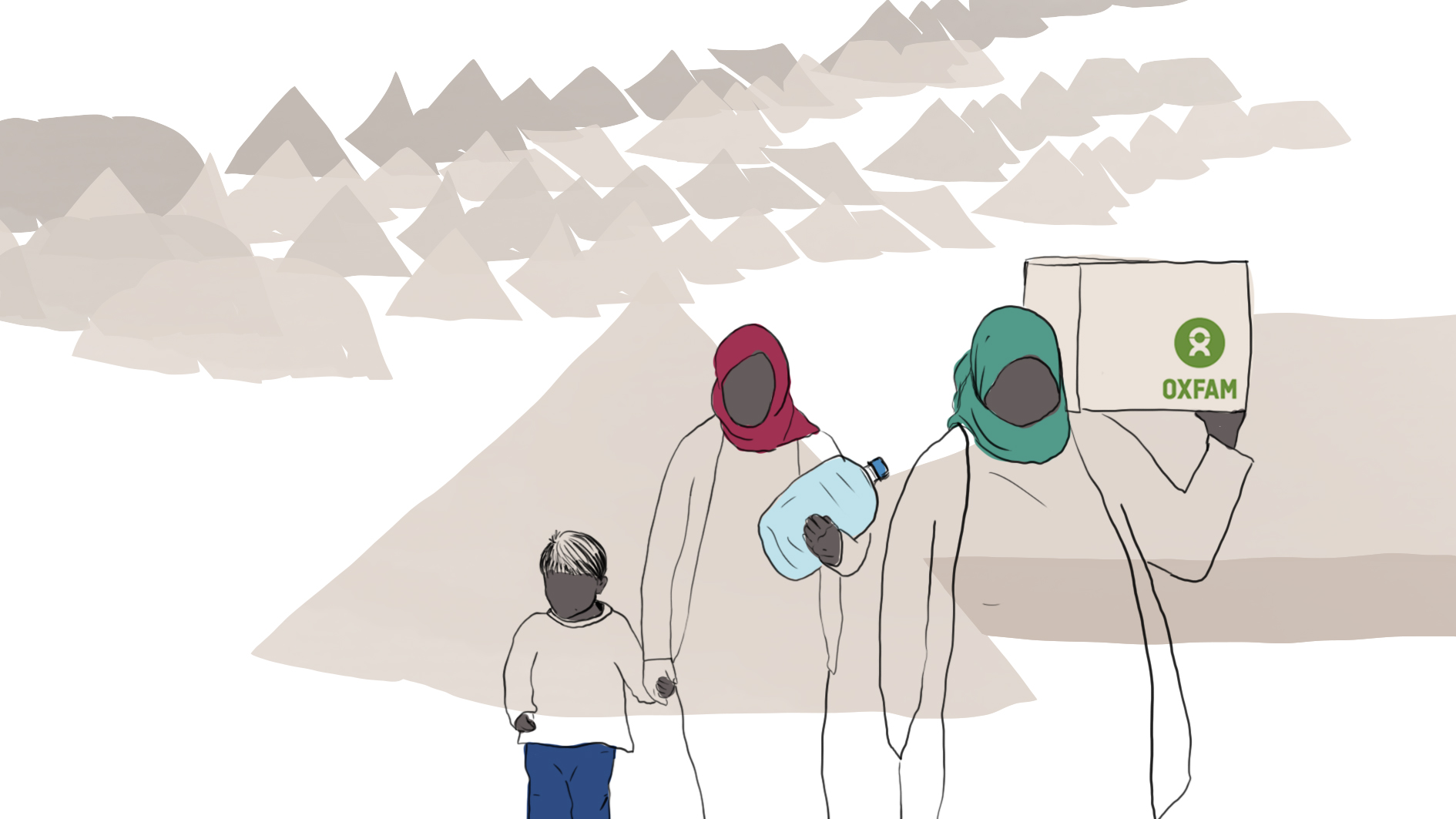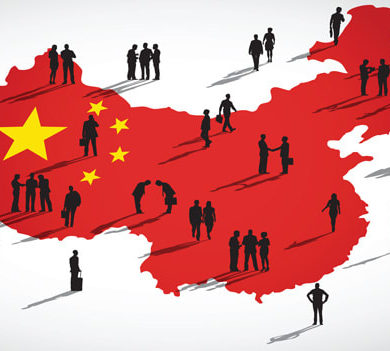Meet the lawyer who is using breakthroughs in DNA technology to find and prosecute current and past sexual predators in the aid industry. | Joshua Lowe
Charities remain some of the highest trusted institutions within the UK, in spite of controversies like the ‘Oxfam Sex Scandal’ where high-ranking members of the Oxfam charity were hiring prostitutes in Haiti.
This continued trust by the public of charities could indicate that meaningful change has been taken by the charity sector to reduce and eliminate abusers in their organisations.
Andrew Macleod, a fierce critic of the aid industry, believes Oxfam’s controversy was in no way the tipping point in understanding the scope of abuse that is being perpetuated across the world.
“One of the most striking things about this is that thousands of children and thousands of women are being abused by aid workers over decades. And we don’t seem to care,” Says Andrew “A female journalist, and I’m glad she was female, said to me, ‘This is happening to little black girls in Africa, and people don’t care about little black girls in Africa.”

While this statement might seem incendiary, it holds validity when compared to the paedophilia scandal in the Catholic Church, which has gained publicity as more and more people are coming forward to talk about abuse at the hands of the church. The amount of attention paid to the scandals with the Catholic Church may be due, in part, because many of the abused are white people from North America.
“There are more aid workers than there are Catholic priests and more countries in the Catholic Church’s presenting with better access to children, controlling things like food, water and shelter,” says Andrew. “Thousands of women and children being raped every year on our dime and we’ve known about it for over three decades.”3
Andrew is passionate about sending those who have committed sex crimes while working in the aid industry to jail. He intends to do this by using a breakthrough in DNA technology, genetic genealogy.
“Genetic genealogy involves the use of DNA to discover ancestry. This can be done to trace down living relatives along with discovering your heritage” says Michelle Leonard, a professional genealogist who specializes in finding the birth parents of adopted children. “The process is improving because of the public’s growing use of websites like Ancestry and 23andMe.”
In 2018, 26 million people had signed up for DNA tracing websites. If the sign-up rate continues at its current pace, over 100 million people will have submitted there DNA to these databases by 2020. Andrew intends to use this newly available database to assist in tracking down children suspected of being born to British citizens through sex abuse in charity organisations.

“Children born of sexual abuse are walking, talking, living, breathing bundles of DNA,” says Andrew. “Put it [the DNA] through the publicly available databases. If there’s a direct match, great. You’ve got the perpetrator. But more likely you’re going to get a whole lot of second, third and fourth cousins.
If you triangulate it backwards and if you’ve got second cousins on the mother’s side and second cousins on the father’s side, the perpetrator can only be an individual or his or her siblings. You add that information to travel information, et cetera, and you find the perpetrator very quickly.”
Andrew has founded an organisation called Hear Their Cries to help track down the parents of these children. Already, the organisation has tracked down the father of a pair of Filipino twins.
“Their father, who’s 74 years old and we found him. He was a contractor for the World Bank in the Philippines for 18 years, and nine months ago and had an alliance of some sort or another with their mother,” says Andrew. “We’ve approached him on behalf of the girls to ask for his support in asserting paternity and their rights to the British nationality that they’re entitled to now.”
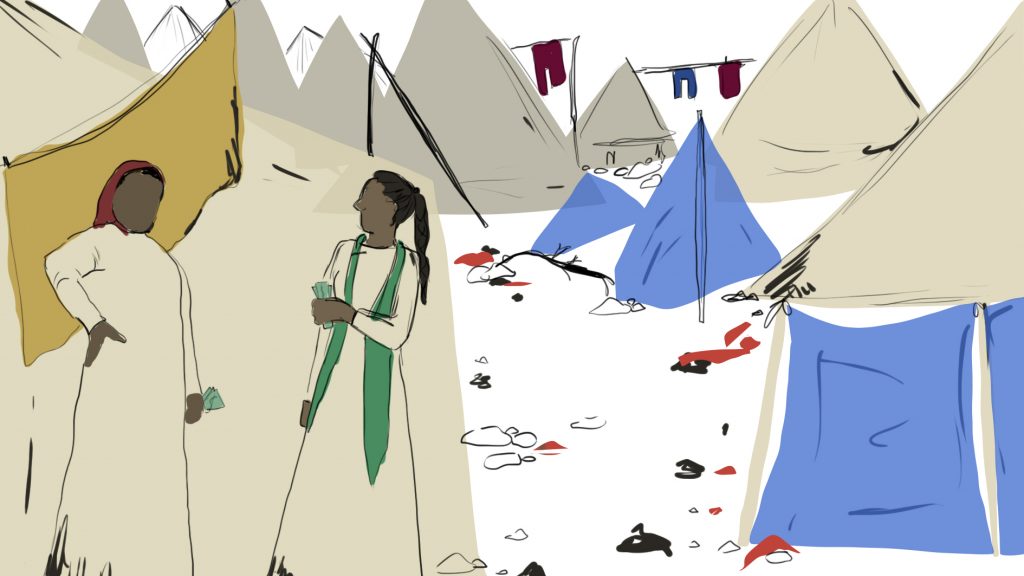
According to British law, in order to be a British citizen through paternity, the father has to be British. The use of genetic genealogy makes it possible to find thousands of British citizens born abroad whose fathers were exploiting the aid sector or participating in the sex tourism industry.
There are no guarantees that Andrews plan will work, however. There is still a long process to go through with the home office to get a precedent put in place and he admits that the chaos surrounding Brexit has put his case on the back burner.
Regardless of setbacks, he’s faced already, Andrew is a highly determined man and is already thinking of the wider applications of this process.
“Once we move the process through the bureaucracy, then we go the second step, which is not just to prove the paternity for purposes of a passport. If we can establish that the mother was under the age of 16 in the act of procreation, then we activate Section 72 of the Sexual Offences Act and then we throw people in jail,” says Andrew.
Through international law, anyone who commits a sex crime against a child in a foreign country can be tried in their home country.
One way of this working is that if they find a woman who claims to have had a child with a British man. They would require DNA from the child and the birth certificate of both the mother and child. Using genetic genealogy track down who is likely to be the father.
They can then approach who they think is the father and ask him for DNA, if he refuses, they can get a court order demanding he gives it. If the DNA is a confirmed match he is definitely the father.
If the child’s birth certificate says he/she is 17 and the mothers says she is 30 then that would mean the mother was 13 when she had her baby. Under international law that would make the liaison between the father and mother a sex crime.
According to international law, anyone who commits a sex crime against a child in a foreign country can be tried in the home country of the accused abuser.
For example, if an organisation like HTC finds a woman who claims to have a child as a result of sexual assault by a British man, the organisation can use DNA technology to track down the suspected father. The mother would be asked to provide DNA from the child, as well as both her and the child’s birth certificates to begin the process. Once the likely father is matched, the organisation can then approach him and either request DNA or use a court order to obtain the necessary sample.
If the DNA is a confirmed match and the birth certificates of the mother and child show that the mother was younger than 16 when the child was born, under international law, the father can then be charged with not just the sexual assault but also with the crime of having sex with a minor.
But he doesn’t just want to target the perpetrators of the abuse, he wants to go after the people and organizations that could be enabling them
“If we find two or three perpetrators from the same organization, then we go after the trustees and CEOs,” says Andrew. He pointed to the Oxfam Sex Scandal as evidence for the way larger organisations can shield accused abusers and hide the actions of their aid workers.
“Now, the chair of Oxfam said they knew about this [the Oxfam Sex Scandal] for years and did nothing. So, here is a fair warning to Oxfam that this is misconduct in a public office… I might not get you this year. I might not get you next year. It might be on your 87 birthday. But I’m coming to you.”
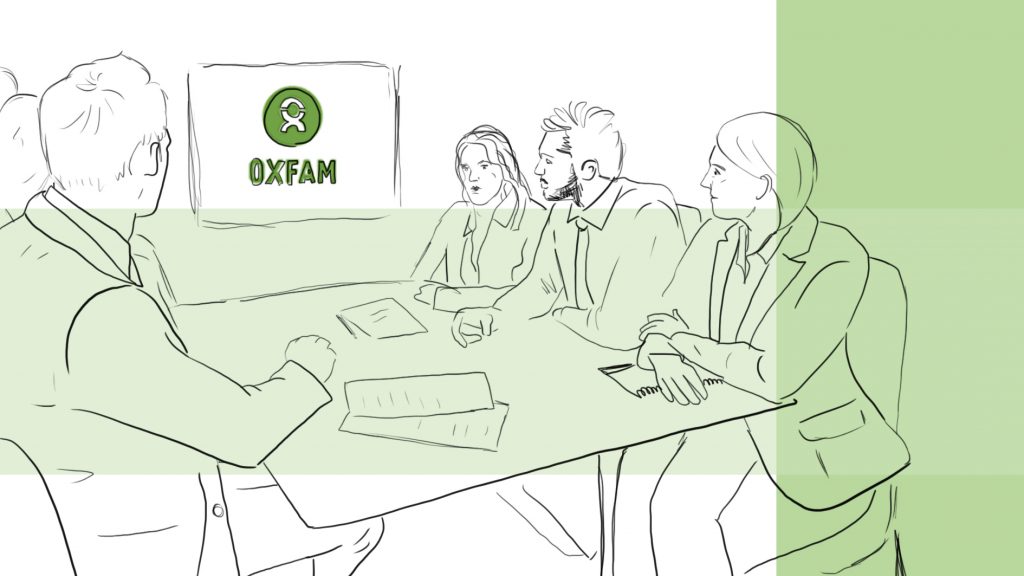
Andrew has no qualms about bringing these men to justice
“I’ll go after their houses or go after his assets and make sure his family knows, make sure the children get fair dos in his will. These are his children,” says Andrew.
“There are thousands of British children around the world today that are unaware of their rights as British citizens and are not being protected by the British government because their deadbeat fathers who created them ran away,” says Andrew, “and in the cases where the mothers were under the age of 16, ran away from their criminal liabilities.”
Andrews efforts are confined primarily to finding unknown British citizens, but the West has been sending aid workers and private contractors to the developing world since the end of World War II, and the issue of sex abuse has been a contentious issue within the United Nations for generations.
Kofi Annan a former secretary-general of the UN wrote one of his regrets was failing to crack down on the paedophilia and sexual crimes, Ban Ki Moon who took the position after Kofi Annan has said the same. For 20 years, the leaders of the United Nations have made note of this issue, but little seems to have been done about it.
These crimes are not just confined to the UN, Save the Children have hundreds of accusations against it and that is just what has been reported on their website. There have been several sexual misconduct scandals involving United Nation Peacekeepers, going back to the late 1990s in Bosnia.
“The UN does have DNA samples that peacekeepers, the reason for that is if soldiers get killed in battle, then you can identify their remains. So, they should open up those databases,” says Andrew. “Peacekeepers have fathered lots of children. if the UN open up those databases. Peacekeepers will go to where those peacekeeping forces were, and we’ll find the children.”
However, Andrew believes the likelihood of the UN opening up their DNA databases to find children born as a result of sexual assault is small, as doing so would be a huge embarrassment to the international organisation charged with protecting vulnerable populations from crimes such as rape and assault. It would also be a huge financial burden on the organisation, as they would likely be required to contribute child support to the victims and their families.
“Right now, the fear of detection in the aid industry is zero. If I can create a fear of detection, then I scare the perpetrators away. That’s the objective,” says Andrew. “How will technology change over the next five years? Where you think you’ve got away with it now?”
He does acknowledge that it’s not an all-encompassing deterrent, currently, it would only target male perpetrators and those who fathered children. However, it does point to the need for a greater critique of the aid industry on the whole.
Andrew thinks that nothing will happen because the aid industry is in too much denial not willing to admit there is a problem.
“There is only one statement that needs to come from the aid industry to make me realize that now taking it seriously. We need to report these people to the police full stop. That’s the first step,” says Andrew.
Many victims of sexual abuse, especially in underdeveloped countries, do not report any type of sex crimes to their local police for fear of retribution. In certain countries, reporting sex abuse could result in further trauma to the victim, including punishments for extramarital affairs.
This gives charities an excuse to not report to local and national authorities claiming to be on the side of the victim, to counteract this they often hold internal investigations into their own staff and their conduct.
Andrew says. “Oxfam is not an international criminal prosecution organization, nor is Save The Children, nor is the Charity Commission. So why are they doing criminal prosecution investigations”
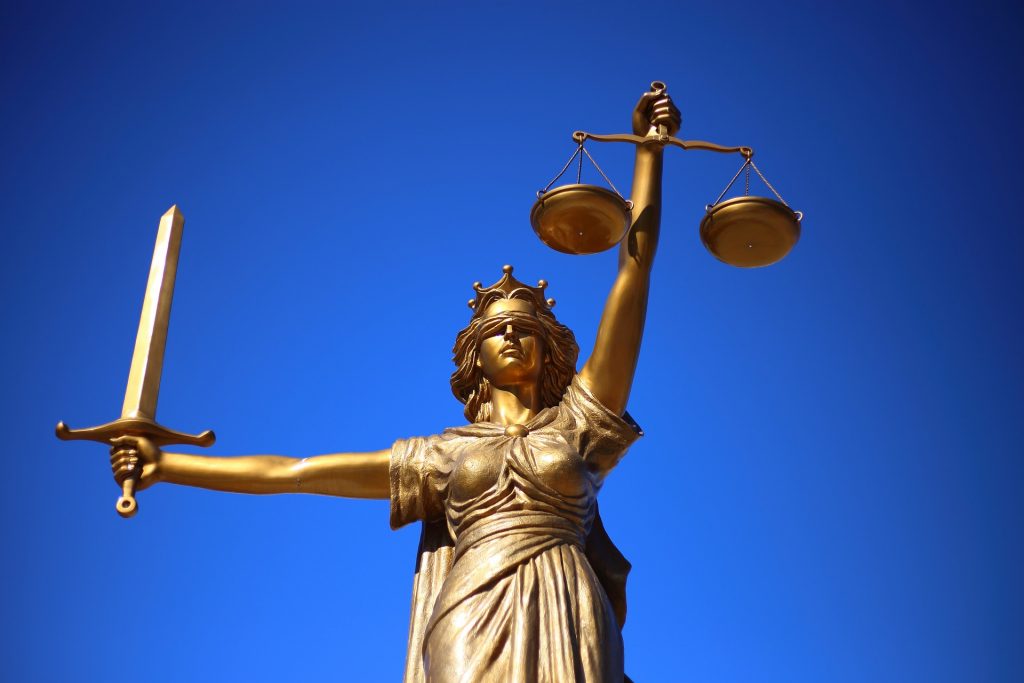
“Standard protocols for immediate reporting back to the police force of the home jurisdiction of the perpetrator. If it’s a child sex offence accusation, a standard protocol for reporting to the police officers in the country where the accusation took place, also where the accused or alleged crime took place,” says Andrew. “If there is an overwhelming belief that it is not in the best interest of the victim to report, then set up a mechanism where that decision is judicially reviewed and another system of justice applied.”
Another system of justice could be compensated to the victim both monetarily and with psychological care, possibly taking the victim out of the country where the abuse occurred, or to fight for the child’s rights of citizenship if the perpetrator of abuse came from a different country.
The aid industry is not known for being accepting of critiques or suggestions on this topic, something that Andrew is well aware of.
“I actually had a very senior person in UNHCR who’s a very good friend of mine write to me and say, ‘Andrew, you’re threatening our funding’,” says Andrew. “And I responded to him and said, ‘What’s threatening the funding? The raping of children and the cover-up, or me trying to stop it?’ And he’s never replied.”
A common argument used by the aid industry is that by exposing how rampant these problems can negatively affect their ability to do good around the world.
Andrew said. “So these bad things are a cost of what we’re doing. And you have to accept that. Which is why the response to people in the aid industry, to what we’re doing is you’re threatening our funding if you’re undermining our work.”
Without further scrutiny, it is likely that abuses committed within the aid industry will continue to happen unchecked on a large scale.
With increasing innovations in DNA technology and by using genetic genealogy, people like Andrew hope to deter potential perpetrators from committing these offences in the first place. If not, well, Andrew says “I’m coming for you.”
